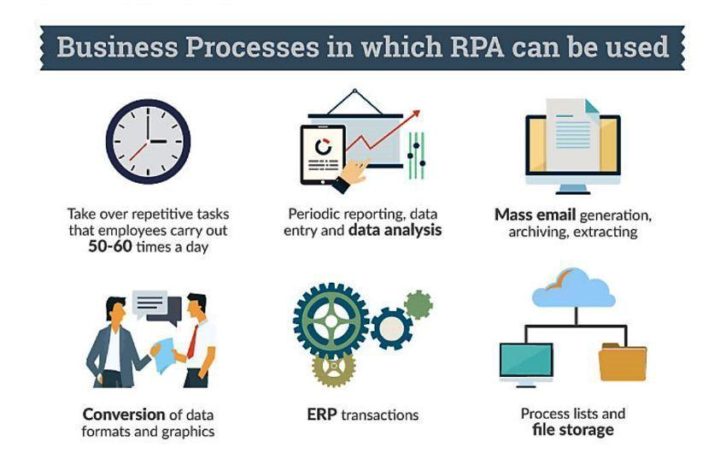RPA or Robotic Process Automation benefits businesses by enabling them to cut costs, improve operations, efficiency and productivity. For this reason, demand for RPA has been growing as companies realize the numerous benefits and the potential the technology has in improving operations and efficiency.
In practice, the robotic process automation enables businesses to automate a wide range of routine and repetitive tasks that generally take a lot of employees’ time. Deploying the technology helps to free up the staff and provide them with an opportunity to work on other more demanding tasks hence add more value to the business. Besides performing the repetitive tasks, the RPA has a wide range of other benefits.
Generally, RPA has the potential to save businesses and organizations thousands of staff hours per year. It eliminates the need for human workers to perform repetitive tasks for extended periods. Using software tools and technologies such as artificial intelligence, the RPA can replace the human workers and improve the operations and productivity while freeing up the staff to perform other duties.

The robotic process automation can boost the morale of employees and increase job satisfaction as they can now engage in more challenging tasks – hence provide more value to the organization.
Today, RPA is advancing towards new heights and enabling businesses to achieve a wider range of technical and operational benefits. Technically, the RPA benefits organizations in a similar way as outsourcing, only that instead of engaging third-party companies of human workers, it uses software robots.
General RPA benefits
Generally, most of the advantages of robotic process automation are general and similar regardless of the industry. However, there are also several industry-specific RPA benefits specific depending on the type of business and its operations.
General benefits include
- Improving the quality of service delivery to customers
- Increase customer satisfaction
- Enabling multitasking and flexibility in handling various tasks
- Improving the accuracy
- Better risk management
- Enabling easier compliance with various regulatory and compliance requirements
- Better time usage on repetitive tasks
- Reduce human efforts when performing various iterative tasks
- Eliminate human errors
- Complete automated tasks faster and with little effort
Industry-specific RPA application areas
RPA also delivers several benefits that are specific to the industry. Some of these areas where it is applicable include;
- Information and communications technology – automating service order management, quality reporting, etc.
- Healthcare – automating the reports management as well as the healthcare systems reconciliation
- Insurance – automating the claims processing, and offering new business processing opportunities
- Manufacturing –automating the generation of bills of materials
- Energy and utility – automating the account setup processes and validating the meter readings
- Human Resources – automating the hiring process, payroll, and employee data management
- Finance & Accounting – automating the general ledgers, accounts receivable, accounts payable, etc.
- Procurement – automating the processes that range from requisition to issue of a purchase order, invoice processing, etc.
- Contact Center – automating customer service activities.
Using the RPA to automate the above areas, the businesses can streamline their operations, and improve service delivery, efficiency and production.